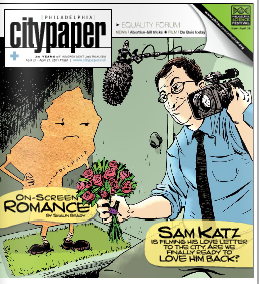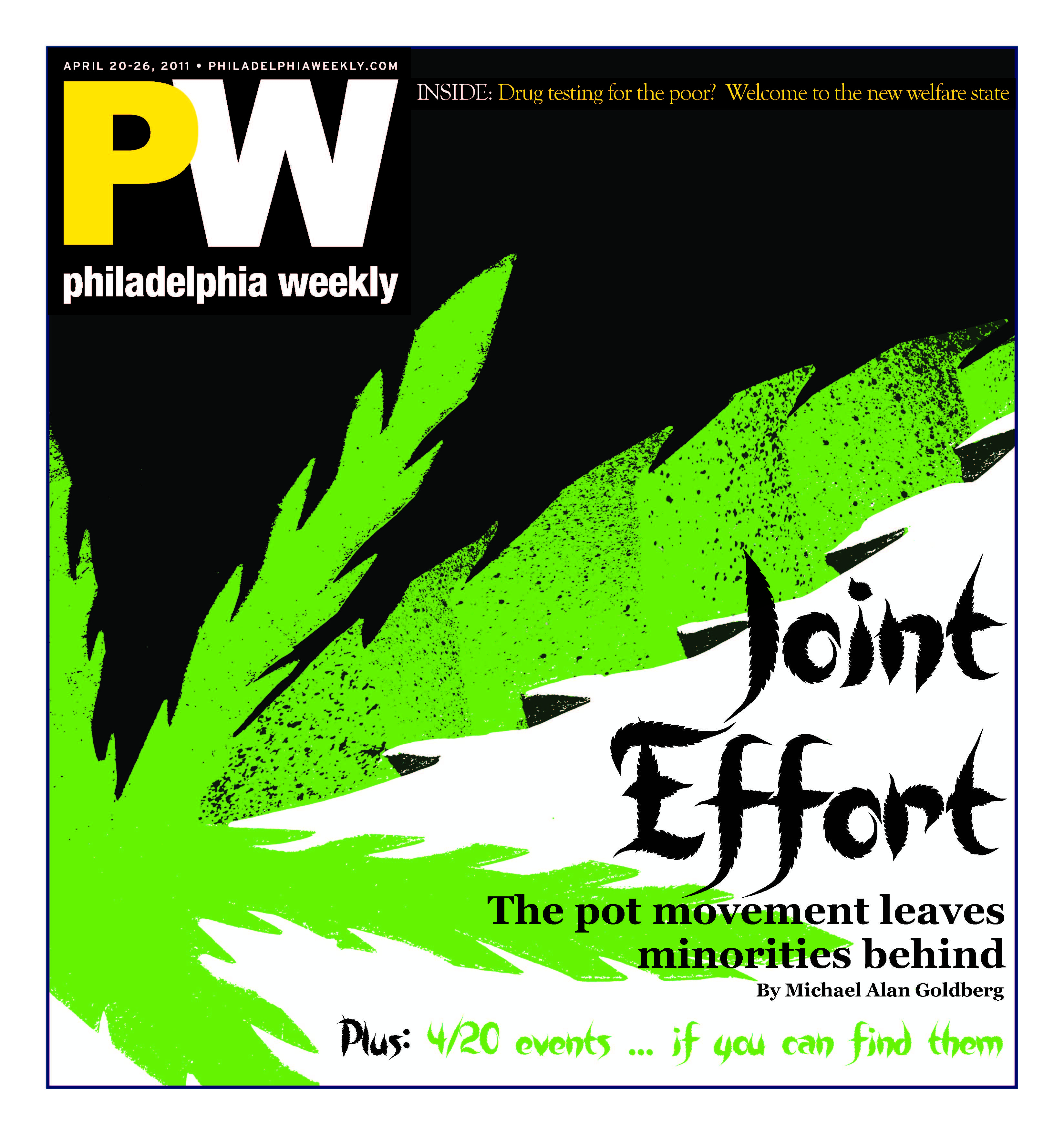 BY DAVE ALLEN Like time, news waits for no man. Keeping up with the funny papers has always been an all-day job, even in the pre-Internets era. These days, however, it’s a two-man job. That’s right, these days you need someone to do your reading for you, or risk falling hopelessly behind and, as a result, increasing your chances of dying lonely and somewhat bitter. That’s why every week PAPERBOY does your alt-weekly reading for you. We pore over those time-consuming cover stories and give you the takeaway, suss out the cover art, warn you off the ink-wasters and steer you towards the gooey center. Why? Because we love you!
BY DAVE ALLEN Like time, news waits for no man. Keeping up with the funny papers has always been an all-day job, even in the pre-Internets era. These days, however, it’s a two-man job. That’s right, these days you need someone to do your reading for you, or risk falling hopelessly behind and, as a result, increasing your chances of dying lonely and somewhat bitter. That’s why every week PAPERBOY does your alt-weekly reading for you. We pore over those time-consuming cover stories and give you the takeaway, suss out the cover art, warn you off the ink-wasters and steer you towards the gooey center. Why? Because we love you!
ON THE COVER
CP: I inquired a couple weeks ago where the sportswriters had gone, and CP rewarded me with the next best thing: a new joint from Shaun Brady, and though he’s not a sportswriter, his coverage of jazz and cinema is even more dispensable than a Phillies-related cover might have been. He writes on film this week and, obliquely, about politics, too: his subject is political honcho Sam Katz’s Philadelphia documentary.
Mayoral races come but once every four years, and a guy’s gotta find something to kill all that time in between. Katz’s duties as the  newly appointed chairman of the Pennsylvania Intergovernmental Cooperation Authority have been keeping him busy. But it was a very common, red-enveloped time-killer — the gift of Netflix, a birthday present from his son Phil — that led to his role as film producer.
newly appointed chairman of the Pennsylvania Intergovernmental Cooperation Authority have been keeping him busy. But it was a very common, red-enveloped time-killer — the gift of Netflix, a birthday present from his son Phil — that led to his role as film producer.
“I started watching every kind of documentary as well as all these violent movies,” Katz says. A perusal of his queue would lead from Martin Scorsese’s historical drama Gangs of New York to the 16-hour PBS documentary New York, and from there to other city stories: Chicago, Las Vegas, New Orleans.
“Then I wanted to watch [one about] Philly, and there wasn’t one,” Katz recalls. “Why is it that the most historically significant city in America doesn’t have a documentary film about its own history? Las Vegas is all of a hundred years old, basically set up as a town where people that were building the Boulder Dam could spend their money on gambling, prostitution and drink. We have a few more core values here.”
Thus a restless candidate without a campaign invented one: refashioning himself as a media mini-mogul with two new companies and a massive, ongoing fundraising effort to produce a seven-hour documentary series called Philadelphia: The Great Experiment, along with supplemental materials that would at least triple that running time.
It’s a compelling take on an unexpected side of a political candidate. It doesn’t make light of Katz’s unsuccessful mayoral runs, and though the man jokes that the door to his office should say “Uncreative Katz,” it’s clear that both his heart and his inspiration are in the right place, united by this project.
PW: I’ve seen it argued that white people shouldn’t be allowed to vote. Should they be allowed to run the National Organization for the Reform of Marijuana Laws? Michael Alan Goldberg investigates, starting with NORML’s Philadelphia foothold.
At its inception in 1970, NORML’s membership was predominantly white because at the time it was much easier for whites to publicly advocate marijuana legalization without repercussions than minorities. Since then, St. Pierre admits, outreach has taken a  backseat to NORML’s consuming lobbying efforts, such as the medical marijuana fight, which has swallowed up most of the group’s limited resources (including their annual budget of less than $1 million) over the past 20 years.
backseat to NORML’s consuming lobbying efforts, such as the medical marijuana fight, which has swallowed up most of the group’s limited resources (including their annual budget of less than $1 million) over the past 20 years.
St. Pierre says the organization focused on medical marijuana because “that’s what we had to do.” His analogy is “Churchill in World War II saying, ‘Yeah, I’ll go fight Rommel in the desert,’ and they said, ‘Why? You don’t have to.’ And Churchill said, ‘Because we need to win somewhere. We’re losing everywhere.’ Medical marijuana has been the means to establish a toehold to turn prohibition around.”
PhillyNORML likewise cites a lack of money and manpower. “There’s a lot of ground to cover out here,” says Goldstein. “It’s a big city. We do the best we can. As a nonprofit volunteer organization with less than $10,000 a year, we can only do as much as our resources allow.”
Dougherty acknowledges that it’s difficult to argue the civil-rights angle when those most affected by marijuana prohibition aren’t engaged in the fight. “People of color are the ones mainly being arrested for these crimes,” he says after the meeting. “So they need to be out on the streets with us marching against this and being vocal about it … It can’t be just a bunch of white people that’s gonna get [legalization] done.”
Once busted himself for pot possession, Dougherty also recognizes that the effort to draw in people of color, or to even talk about legalization as a civil-rights issue, is exceedingly difficult given the perception, fair or not, that NORML is just looking out for whites. And while Dougherty concedes that NORML could put more effort into outreach—“We can definitely do more …we need to get involved in those areas of the city”—he also says activism is a two-way street. “We can only reach out so much—there’s got to be a hand on the other side to reach out to.”
CP: Full Fathom five, emphasis on full. The dulcet tones of a seven-stringed hash-pipe. Major laughs for every Bell Curve entry except for the Orchestra bankruptcy one. That shit ain’t funny. A.D.‘s with me on that, too.
PW: PW’s version of gateway drugs: From pot to crack. 4/20 events… wait, I already missed them? Dammit. Fake Andy Rooney = even lamer than real Andy Rooney. Kenzo Pride: Just in time for 4/22 (Look it up).
WINNER: After a week off, my decision-making powers are a little rusty. If I were more mellowed-out after celebrating 4/20, I’d give the nod to PW, but I didn’t, so I’m not, so CP takes it.
